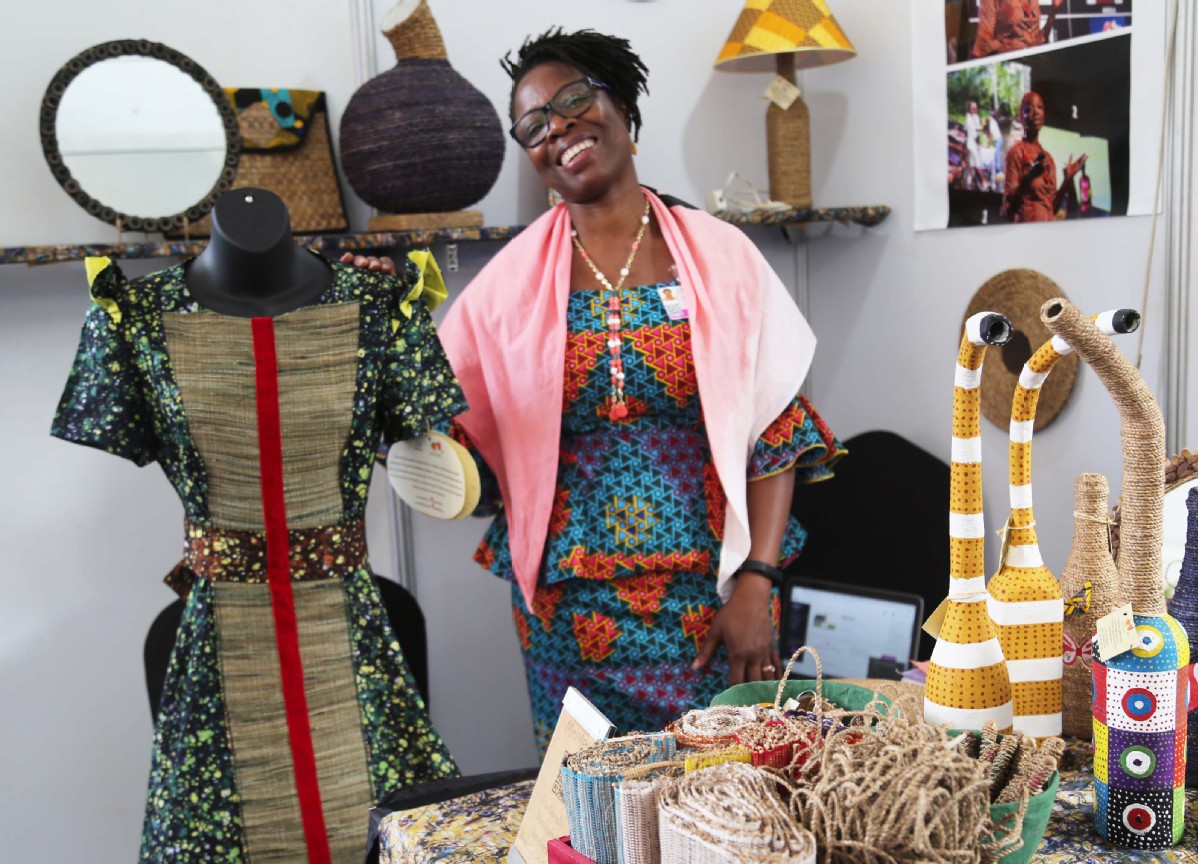Africans see opportunity in ecological challenges
By EDITH MUTETHYA | China Daily Global | Updated: 2019-05-08 09:16

Newton Owino, born and raised in Western Kenya's Kisumu county on the shoreline of Lake Victoria-a region where fishing is one of the main economic activities-noticed an opportunity presented by an environmental challenge.
Fish waste such as skin was becoming a serious threat to the health of the neighboring communities and the aquatic life in Lake Victoria. Owino was convinced that he could turn the waste material into useful products.
To make his dream a reality, he decided to pursue a bachelor of science in leather chemistry at a university in India, since the course was not offered locally.
Today, Owino runs a social enterprise based in Kisumu that produces shoes, jackets, earrings, necklaces and belts from fish waste. The products are made by tanning fish skins that are a byproduct of local fish-processing plants.
In a month, he produces 8 tons of fish leather, from which he makes 3,000 pairs of men's shoes, 1,200 pairs of women's sandals, 200 belts and a number of earrings, necklaces, belts and jackets.
"We export our finished leather products to California in the United States, and we are receiving orders from other parts of the world. We export earrings to Italy and the demand is so high," he said.
Owino's shoes sell for 2,500 Kenyan shillings ($25) locally and 9,500 Kenyan shillings on the export market, while jackets cost 4,500 Kenyan shillings locally and 15,500 abroad.
"The product demand is so high, yet my capacity is too low. One of the challenges I face toward expanding my business is lack of qualified staff," he said. Owino trains leather technologists for a year before they have the necessary tannery skills.
The raw materials are plenty. Annually, the filleting industry in Kisumu produces close to 150,000 tons of fish waste, he said.
Owino's workforce includes 288 women who do pre-tanning operations, 17 youths who carry out the tanning operations and 37 workers who make the various leather products. About 80 farmers supply him with tanning materials.
In Nigeria, meanwhile, Achenyo Obara is transforming water hyacinth, an invasive, fast-growing aquatic plant that floats, into useful products.
Obara runs Mitimeth, a social enterprise based in Ibadan, Nigeria, that makes home decor products and personal accessories from water hyacinth.
Her main market is domestic, but she looks forward to exporting the products in the near future.
She trains communities in how to harvest and weave the water hyacinth.
"We harvest the water hyacinth, then sun-dry the stems, after which we weave them into beautiful products. So far, we have trained over 350 women," she said.
Eighty artisans now work in Mitimeth's supply chain, of which 70 percent are women.
According to Obara, out of Nigeria's 36 states, the water bodies of 26 are infested with hyacinth.
"Through training women to weave and make money from the products, their livelihoods have been improved," she said.
























